# compliance
12 posts in `compliance` tag
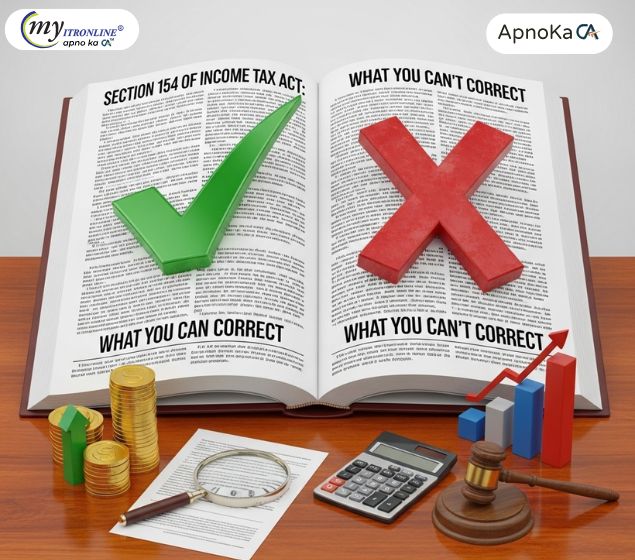
Section 154 of Income Tax Act: What You Can and Can’t Correct
Section 154 of the Income Tax Act allows taxpayers to correct obvious errors in their tax assessments. This blog outlines common mistakes like TDS mismatches, incorrect tax calculations, and personal detail errors, and explains how to file a rectification request online. A must-read for salaried individuals, freelancers, and business owners.
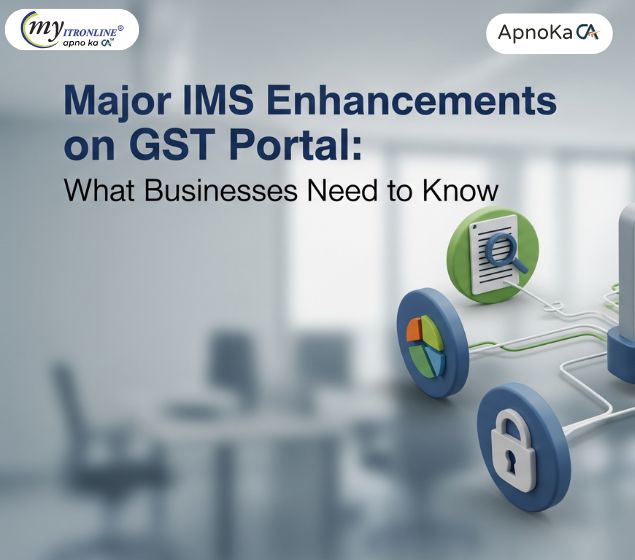
Major IMS Enhancements on GST Portal: What Businesses Need to Know
Starting October 2025, the GSTN has rolled out major updates to the Invoice Management System (IMS) that simplify compliance, improve transparency, and give taxpayers more control over invoice handling. This blog breaks down the key changes and what they mean for businesses.
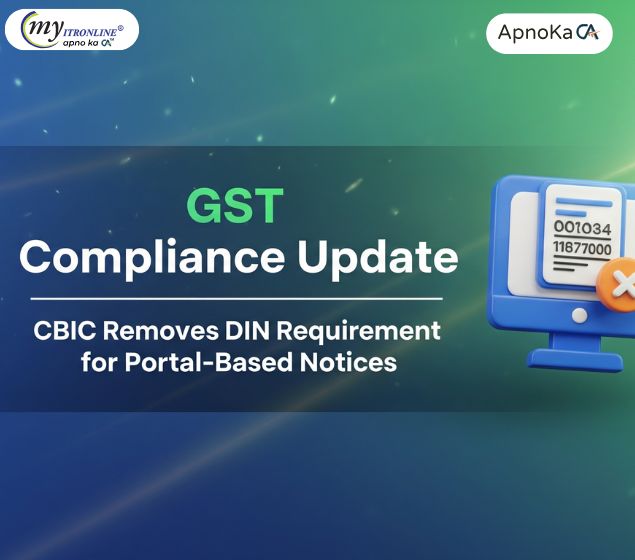
GST Compliance Update: CBIC Removes DIN Requirement for Portal-Based Notices
CBIC has released Circular No. 249/06/2025-GST, removing the mandatory use of DIN for communications issued via the GST portal. However, DIN remains compulsory for eOffice-based documents, as clarified in Circulars No. 23/2025 - Customs and 252/09/2025 - GST. This blog explains the changes and what taxpayers need to know.
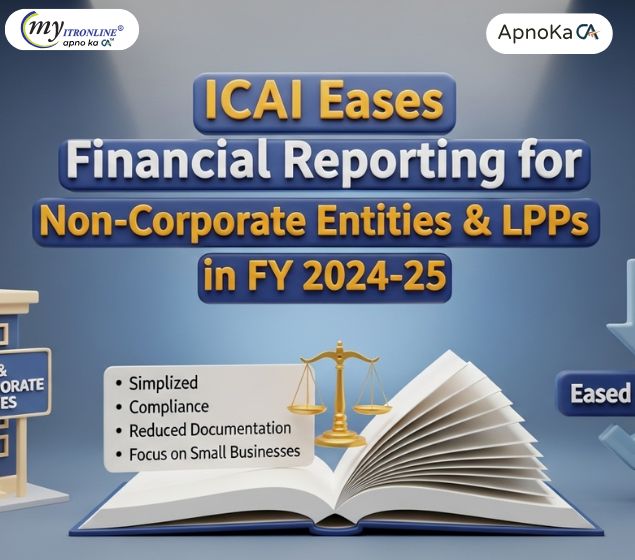
ICAI Eases Financial Reporting for Non-Corporate Entities & LLPs in FY 2024-25
The Institute of Chartered Accountants of India (ICAI) has announced a significant, temporary compliance relaxation for non-corporate entities and Limited Liability Partnerships (LLPs) for the Financial Year 2024-25. This allows these entities to optionally adopt updated guidance notes on financial statements, aiming to reduce administrative burden while maintaining transparency and accuracy. This flexibility ensures that core accounting standards remain paramount, offering businesses a choice in their reporting approach for the upcoming fiscal year.

Big Changes Coming to GST on October 1, 2025: What Your Business Needs to Know
The Indian government has announced significant GST updates, effective October 1, 2025, stemming from the Finance Act, 2025. These amendments will impact definitions, voucher taxation, Input Tax Credit (ITC) on plant & machinery (retrospectively from 2017), return filing procedures, appeal processes, and introduce a new 'track & trace' system with associated penalties. Businesses must prepare for these changes by reviewing operations, updating systems, and training staff to ensure compliance and manage potential cash flow implications.

Big News for Small Businesses: Say Goodbye to Annual GST Returns (GSTR-9) From FY 2024-25!
This blog post announces a significant and permanent change in GST compliance for small businesses in India. From Financial Year 2024-25, businesses with an annual aggregate turnover of up to 2 crore are exempt from filing the annual GST return (Form GSTR-9). The article details what changed, who benefits, and the tangible advantages like time and cost savings. It also highlights crucial reminders about continued monthly/quarterly filings, record-keeping, and turnover monitoring. The post emphasizes that this move will greatly enhance the "Ease of Doing Business" for millions of small enterprises.

Didn’t File ITR by September 16? Here’s What You Can Still Do
This blog post provides a comprehensive guide for individuals who have missed the September 16, 2025, deadline for filing their Income Tax Return (ITR) for FY 2024-25. It reassures readers that filing is still possible through a "belated return" by December 31, 2025, but outlines the associated penalties, including late filing fees (₹1,000 or ₹5,000) and interest on unpaid tax. The article also details other consequences of late filing, such as the inability to carry forward certain losses, delayed refunds, and potential loss of specific deductions. It touches on rare exceptions and what happens if even the belated deadline is missed. Finally, it offers practical advice to act promptly, gather documents, compute accurately, and seek professional help, promoting MyITROnline as a solution for simplified tax filing.
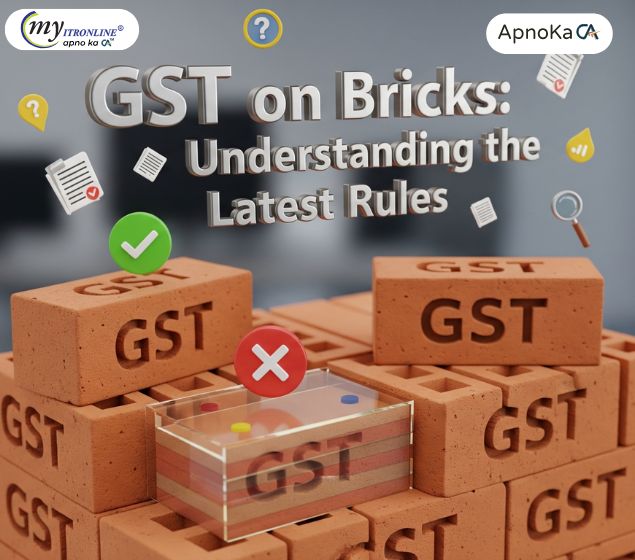
GST on Bricks: Understanding the Latest Rules
This blog post clarifies the latest GST rules for bricks in India, effective September 22, 2025. It details the two tax options for most brick types (6% without ITC under composition scheme or 12% with ITC under regular scheme) and introduces a special 5% GST rate with ITC for sand-lime bricks, which cannot opt for the composition scheme. The article also highlights the crucial annual turnover threshold of ₹20 lakh for GST registration. It explains the importance of these changes, who is affected, the pros and cons, and provides actionable advice for businesses, including checking turnover, correct brick classification, scheme selection, pricing adjustments, and record-keeping. Finally, it discusses the implications for buyers and builders and outlines potential issues such as classification disputes and transitional challenges.

Crypto Firms in India Must Now Pass Security Audits: What It Means
India's Financial Intelligence Unit (FIU-IND) has mandated comprehensive cybersecurity audits for all Virtual Digital Asset (VDA) service providers, including crypto exchanges and custodians. These audits, to be conducted by CERT-In approved auditors, signal a major shift towards a more secure and regulated crypto ecosystem in India. The move aims to combat cybercrime, money laundering, and boost investor confidence, bringing the crypto sector in line with traditional financial regulations. Firms must now prioritize compliance, update security protocols, and prepare for the new PACT certification, marking an end to lax security practices.

Big News! GST Rate Changes Are Coming Soon
This blog post announces significant changes to Goods and Services Tax (GST) rates in India, set to become effective from September 22, 2025, as per Notification No. 09/2025 – Central Tax (Rate). It provides a clear, simplified table comparing old and new rates for categories like household essentials, packaged food, luxury goods, hospitality, travel, professional consultancy, and IT services. The post highlights the implications for businesses (updating systems for compliance) and consumers (potential price changes), emphasizing the government's aim for clarity and easier compliance. It concludes by advising consultation with tax professionals for specific sector-related queries.

194J vs. 44AD: Tax Scrutiny on India's Content Creators & Consultants
This blog post addresses the increasing tax notices faced by Indian content creators, influencers, and consultants due to a common mismatch: clients deducting TDS under Section 194J while they file income tax returns under Section 44AD. It breaks down the key tax provisions (194J, 44AD, 44ADA), explaining what each means for freelancers and businesses. The article clarifies that a 194J deduction doesn't automatically mandate filing under 44ADA; the crucial factor is whether the profession is listed under Section 44AA. It details potential impacts on tax burden, cash flow, and the need for increased documentation, while also offering actionable steps for creators and consultants to ensure compliance, including clarifying work nature, maintaining records, client communication, cash flow monitoring, and seeking professional tax advice.
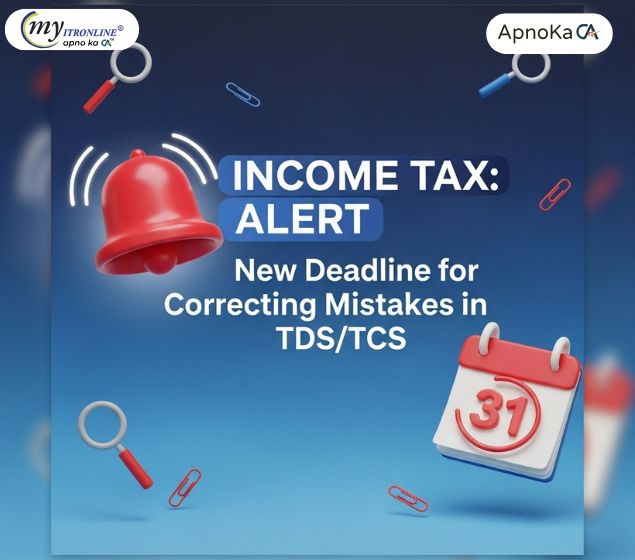
Income Tax Alert: New Deadline for Correcting Mistakes in TDS/TCS
The Income Tax Department has given a final chance to correct mistakes in TDS/TCS returns for FY 2018–19 to FY 2023–24. The correction deadline is March 31, 2026. After this, only 2 years will be allowed for revisions, and unresolved errors may lead to tax notices.
